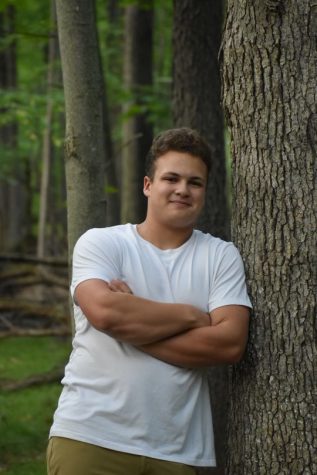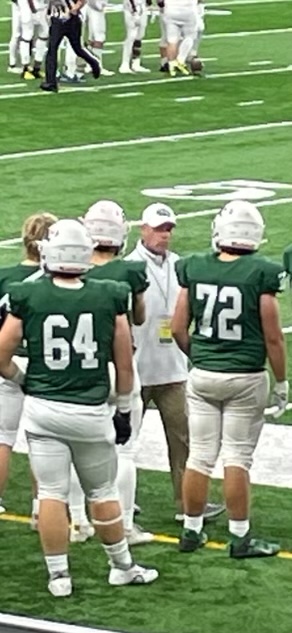JV sports: preparation or pastime?
JV sports have been around longer than most people can remember. Junior varsity is a time for the underclassmen to develop as players and people along with growing their chemistry with a group of athletes.
Head JV and freshman football coach, Anthony Sultini, came to FHC after an eleven year football coaching career at FHN, seven of those as the head coach of the freshman team. He has been at the helm of the FHC program for the past three years but has been in the program for five, so he knows the FHC football program inside and out. His hope is for the younger football players to learn how FHC plays and grow up with those plays from a young age.
“If you look at our entire football program all the way down to the 7th and 8th graders, you will know they’re all learning the same program,” Sultini noted. “They’re learning the offense and defense we are using at the high school level, and nobody is learning anything different. When every athlete and coach at every level is on the same page, it goes a very long way.”
The goal for a JV program is to prepare for the varsity level, with hopes to bring back hardware to the home base. With that said, by the time these players reach the varsity level, they will already have at least three or four years of varsity knowledge when it comes to knowing the offensive and defensive schemes.
Another common move among coaches across all sports is pulling up JV players to play at the next level. If a student-athlete has the skills to play at the varsity level, he or she should get pulled up, right? Junior basketball and two-year starter, Jonas VanderWoude, transferred from Grand Rapids Christian in his sophomore year but was a constant starter throughout his first season. However, he feels only in a select few cases, should a JV player be pulled up.
“It is not the best move,” Jonas quoted. “For me, I have always been taught that if the underclassman is not going to play over half the game, then there is no sense in moving him or her up since that won’t prepare the athlete later on.”
While Jonas believes that, in most cases, it is unlikely that a JV player should be pulled up. Senior Crandall Quinn has a different, yet similar philosophy.
“I think it’s better to move players up if the coach or program thinks they can help improve his or her skills and the team,” Crandall said. “I think it also helps give the player valuable reps and helps them get better than they would if they stayed on JV or a freshman team.”
Junior varsity is competitive, but not to the same extent as varsity, that is no secret. So what benefits does JV provide in sports, other than football with the same program-wide plays?
To start, it allows more athletes the opportunity to play that sport. Not every kid wants to reach the next level in said sport, so JV is a great low-stress option to be active. It gets more kids involved and excited about sports. But, the athletes that are excited to play at the varsity level might see JV as a feeder program.
“We want them to get ahead,” Sultini explained. “We want to get them ready for that varsity level to help our program win championships. Many times, the foundation is critical at the lower levels. A JV level is extremely critical and very much needed in my view, not just as a freshman and JV head coach, but as a coach in general.”
It is clear as day that JV sports mean something a little different to everyone. People like Jonas see it as a way for students to enjoy a sport without the stress of a varsity sport, while people like coach Sultini see JV sports as a way to prepare the next generation of varsity athletes.
With a plethora of sports offered at Forest Hills Central, student-athletes need to make a decision. Is this sport a pastime or is this preparation for the next level?

Lucas Thompson is going into his senior year and is beginning his second and final year with FHC Sports Report. After finding a love for writing within The...



